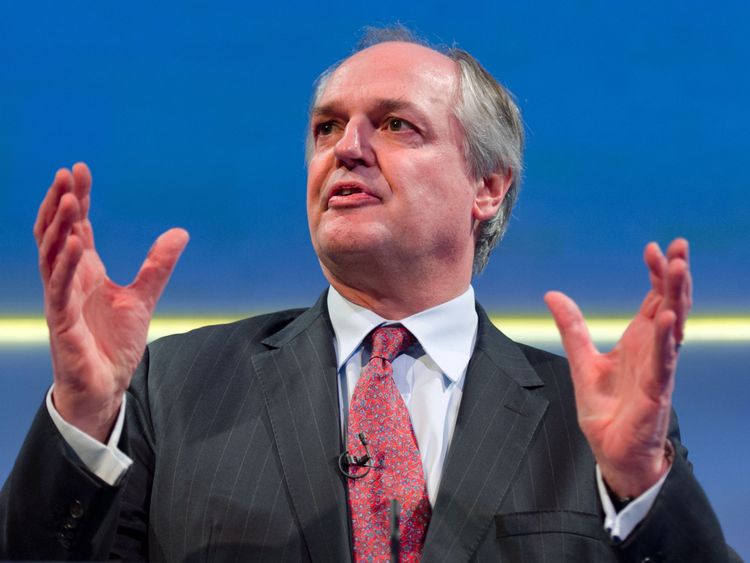Unilever, the maker of Dove shampoo and Marmite, is set to bring the curtain down on nearly a century of corporate history by axing its UK headquarters and consolidating its legal base in the Netherlands.
Sky News has learnt that directors of Unilever’s dual British and Dutch holding companies are meeting in the coming hours to finalise the landmark decision.
An announcement will be made on Thursday – or possibly late on Wednesday – according to City sources who cautioned that the formal verdict had not yet been rubber-stamped by Unilever’s boards.
Unilever – created in 1929 by the merger of Britain’s Lever Brothers and Margarine Unie of the Netherlands – owns many of the world’s best-known consumer goods brands, including Magnum ice cream and Persil detergents.
It is the third-largest company in the FTSE 100 index, with a market value of approximately £113bn during Wednesday’s trading session.
Run by Paul Polman, its Dutch chief executive, Unilever has been reviewing its dual corporate structure since an unwanted £115bn takeover approach from the US-based food giant Kraft Heinz fell apart just over a year ago.
Ministers, including Theresa May, have been briefed on the impending decision to unify under a sole headquarters in Rotterdam, which will represent a major blow to the Government.
Unilever’s announcement is expected to come less than 48 hours after Philip Hammond, the Chancellor, sought to portray the UK as an attractive inward investment destination in his update on the public finances.
Assuming the decision is disclosed on Thursday, it will come on the same day that the Prime Minister meets a group of leading figures from the business community to discuss Brexit-related concerns as well as the broader economy.
Ministers have fought a rearguard action in recent weeks to try to avert the prospect of Unilever scrapping its UK base.
Unilever’s decision will be seized upon by opponents of Brexit, who are likely to cite it as evidence of the damage being wreaked on British jobs and investment.
The precise impact on its UK-based workforce was unclear on Wednesday, however, and Unilever is expected to seek to downplay the UK’s departure from the European Union in its announcement.
The company will also emphasise its continuing commitment to its UK operations, according to insiders.
Dutch corporate laws which allow Netherlands-incorporated companies to adopt ”poison pill” defences to thwart hostile takeovers have been a major factor in the year-long review, according to people close to the company.
Unilever employs about 7,500 people in the UK, with its main base on Victoria Embankment in Central London, while roughly 3,000 people work for the company in the Netherlands.
The majority of its UK-based jobs are unlikely to be relocated, with the company’s British operations regarded as a centre of excellence for marketing and other corporate functions.
Nevertheless, one leading corporate figure described the decision as “totemic”.
It has been a particularly sensitive exercise for Unilever because of the extent to which last year’s takeover approach raised fears about widespread UK job cuts, with Kraft Heinz portrayed as a rapacious corporate raider more concerned with cost cutting than innovation.
More than 100 jobs have already been relocated by Unilever from London to Rotterdam as part of the merger of its food and refreshment units, whose brands also include PG Tips.
While Unilever will retain its primary listing in London, as well as listings in the Netherlands and the US, it will no longer be eligible for inclusion in the FTSE-100 index because its domicile will be outside the UK.
That will affect the ability of fund managers who track the index to hold Unilever’s shares, although active UK-based fund managers will continue to be able to trade the stock.
The unification of its headquarters will be among the last major decisions overseen by Mr Polman, who Sky News revealed last autumn would step down next year.
Since fending off Kraft Heinz’s advances, Mr Polman has sold the spreads division which held brands such as Flora and I Can’t Believe It’s Not Butter, while acquiring businesses in faster-growing consumer product categories such as the online-based Dollar Shave Club for $1bn last year and Mae Terra, a Brazilian organic food company.
Unilever declined to comment on Wednesday.
From – SkyNews




